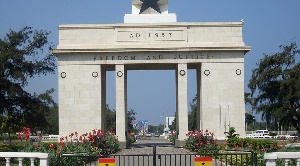Ghana is ranked 138 out of 189 countries in the Human Development Index for this year.
But that is an improvement over last year’s position of 142.
According to the report, the country shared the position with Southern African country, Eswatini [Swaziland].
Between 1990 and 2019, Ghana’s Human Development Index value increased by 31.4%.
Also, the Gross National Income per capita increased by about 127.6% during the same period.
During the period between 1990 and 2019, Ghana, Zimbabwe and Sao Tome and Principe experienced different degrees of progress toward increasing their Human Development Indices.
From Sub-Saharan Africa, Ghana is compared with Cameroon and Kenya, which have Human Development Indices ranked 153 and 143rd respectively.
Interestingly, 55.7% of adult women have reached at least a secondary level of education in the country compared to 71.6% of their male counterparts.
Norway, Switzerland and Ireland were ranked first, second and third respectively.
The Human Development Index is an average measure of basic human development achievements in a country.
It is a summary measure for assessing long-term progress in three basic dimensions of human development- a long and healthy life, access to knowledge and a decent standard of living.
Human Capital Index: Ghana ranks 130 in the world
Ghana was ranked 130 in the 2020 World Bank Human Capital Index released in October this year.
The country made little gains in the index which was extended to cover 174 countries.
According to the report, the government used data to effectively re-target school feeding efforts under the Ghana School Feeding Program (GSFP) after it found that the targeted population was not being reached. However, more need to be done to improve its rankings.
The nation fared better than South Africa and Nigeria.
Data from the national poverty statistics and food security and vulnerability analysis were combined to improve targeting and reduce leakages.
Business News of Thursday, 17 December 2020
Source: businesszoneonline.com



![New IGP, COP Christian Tetteh Yohonu [L] and immediate-past IGP, Dr. Akuffo Dampare New IGP, COP Christian Tetteh Yohonu [L] and immediate-past IGP, Dr. Akuffo Dampare](https://cdn.ghanaweb.com/imagelib/pics/140/14041582.295.jpg)









